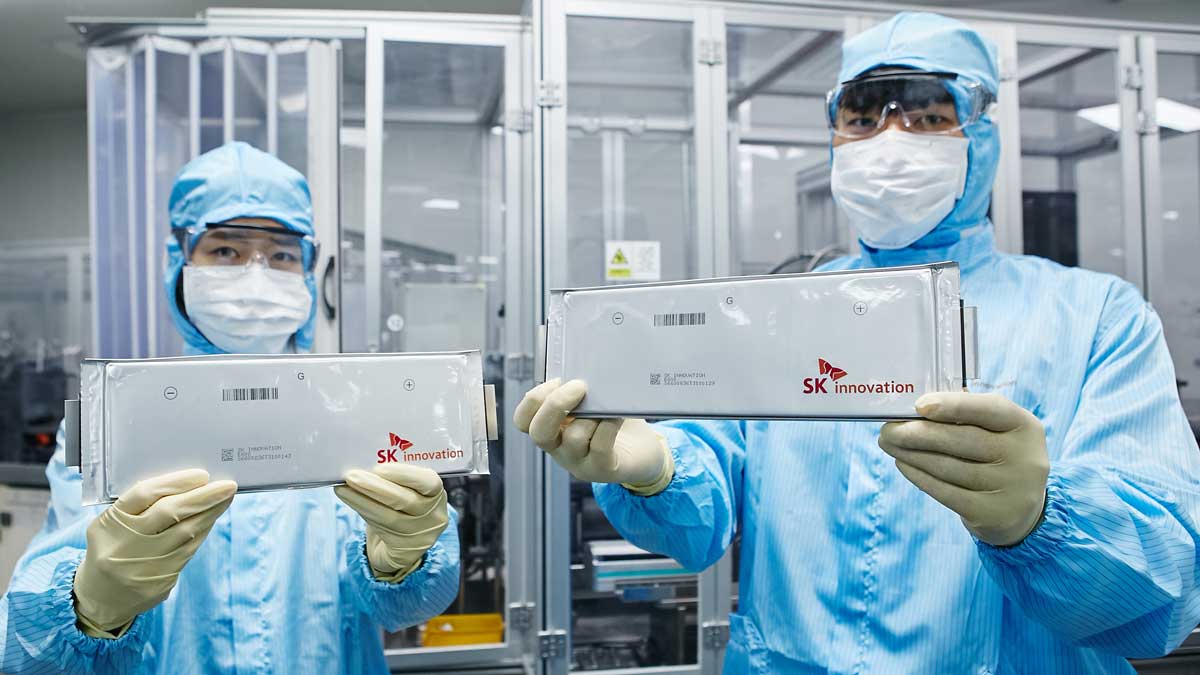South Korean energy and fuel company SK Innovation has reached an agreement to develop next-generation electric vehicle batteries with Nobel Prize winner Professor John Goodenough, the company announced on Thursday.
Under the agreement, the company hopes to solve issues around lithium metal battery safety by researching solid electrolyte use to prevent lithium dendrites that can cause short circuits and reduce battery efficiency.
Dr John Goodenough is famously known as the father of the rechargeable lithium-ion battery that powers electric cars, laptops and smartphones.
In 2019 he jointly won the Nobel Prize for chemistry for his work on cracking the puzzle that enabled commercialisation of lithium-ion batteries, the foundation of a new era of zero emissions transport. He is also the oldest recipient of the esteemed prize.
He is also known for his work on an solid and amorphous “glass” electrolyte battery that for which a patent was submitted in 2017 and which is purported to store as much as three times the energy of current commercial EV batteries.
SK Innovation’s press release on the matter does not go into detail on what kind of solid electrolyte it will work on with Goodenough – but given the professor’s history we imagine it will be something good (enough).

“We will contribute to the development of the industry by developing innovative next-generation batteries with Professor Goodenough,” said SK Innovation director of technology Sung-Joon Lee in a statement.
The work that SK Innovation hopes to complete under the 98-year-old Goodenough’s guidance is described as follows by the company (translated from Korean):
The lithium metal battery greatly increases energy density by using a metal for a negative electrode material, one of the four main materials of the battery.
The dendrite phenomenon is a twig-shaped crystal formed when lithium accumulates on the surface of the cathode when charging the battery. Not only does it degrade battery performance, but it also tears the separators that keep the positive and negative electrodes in contact with each other, leading to fire or explosion. It is a problem that must be overcome in order to make a next generation battery.
In the current liquid electrolyte, ions are inhomogeneously contacted with lithium metal to form dendrites. On the other hand, in solid electrolytes, it is easy to control the movement of ions, thereby preventing dendrites.
The energy density of the current mainstream lithium ion battery is considered as the limit of 800 Wh/L. On the other hand, lithium metal batteries can significantly increase energy density to 1,000 Wh/L or more. High energy density takes up less volume. Therefore, it is possible to add more batteries to the electric vehicle to greatly increase the driving distance or make the vehicle lighter.
“I look forward to opening the next generation of battery era with SK Innovation,” said Goodenough in a statement to the press.
“Developing the innovative next-generation lithium metal battery together with Professor Goodenough, who made the battery industry today, will be a great help not only for SK innovation but also for related industries,” said Lee.
“The company and the world’s top scholars can contribute greatly to the development of the battery industry.”

Bridie Schmidt is associate editor for The Driven, sister site of Renew Economy. She has been writing about electric vehicles since 2018, and has a keen interest in the role that zero-emissions transport has to play in sustainability. She has participated in podcasts such as Download This Show with Marc Fennell and Shirtloads of Science with Karl Kruszelnicki and is co-organiser of the Northern Rivers Electric Vehicle Forum. Bridie also owns a Tesla Model Y and has it available for hire on evee.com.au.

